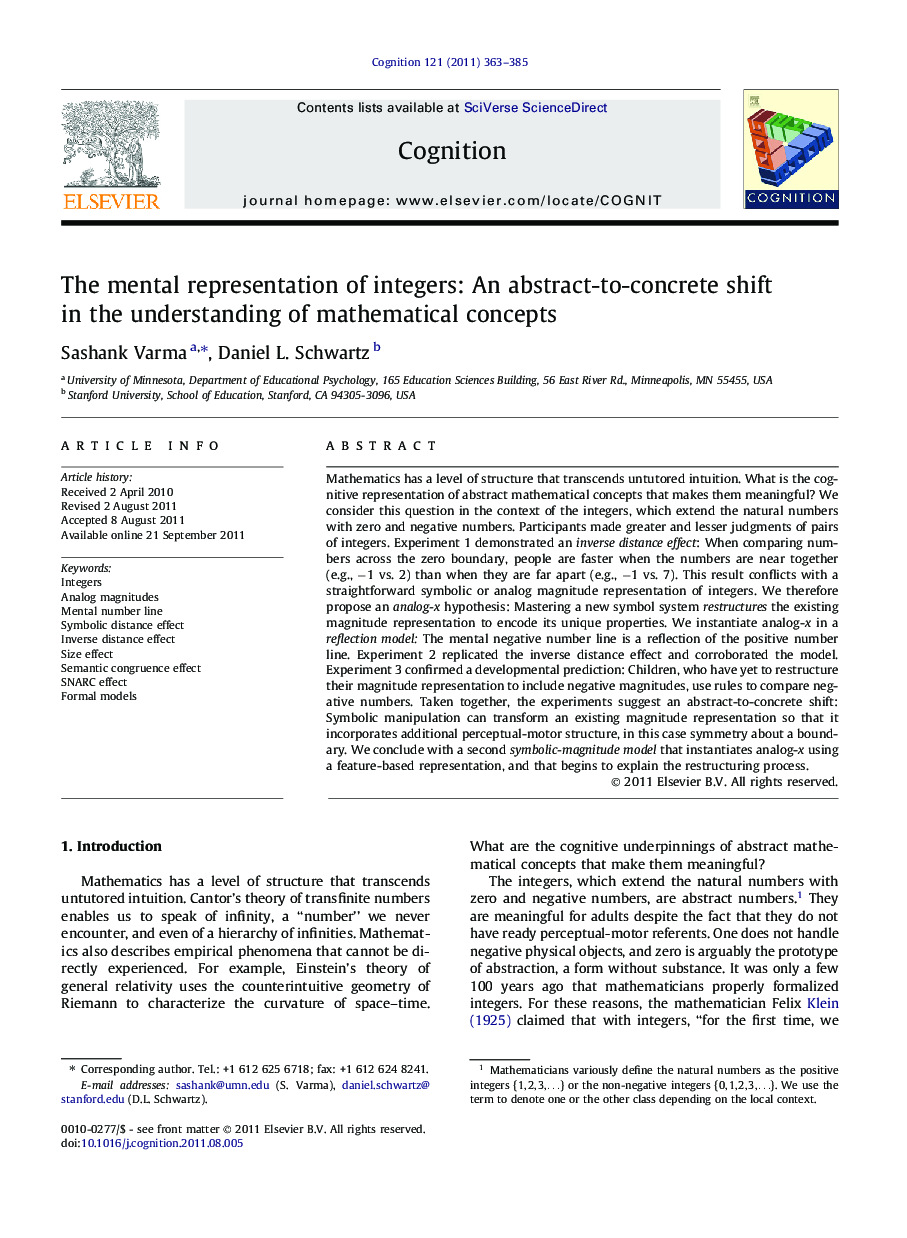| Article ID | Journal | Published Year | Pages | File Type |
|---|---|---|---|---|
| 926544 | Cognition | 2011 | 23 Pages |
Mathematics has a level of structure that transcends untutored intuition. What is the cognitive representation of abstract mathematical concepts that makes them meaningful? We consider this question in the context of the integers, which extend the natural numbers with zero and negative numbers. Participants made greater and lesser judgments of pairs of integers. Experiment 1 demonstrated an inverse distance effect: When comparing numbers across the zero boundary, people are faster when the numbers are near together (e.g., −1 vs. 2) than when they are far apart (e.g., −1 vs. 7). This result conflicts with a straightforward symbolic or analog magnitude representation of integers. We therefore propose an analog-x hypothesis: Mastering a new symbol system restructures the existing magnitude representation to encode its unique properties. We instantiate analog-x in a reflection model: The mental negative number line is a reflection of the positive number line. Experiment 2 replicated the inverse distance effect and corroborated the model. Experiment 3 confirmed a developmental prediction: Children, who have yet to restructure their magnitude representation to include negative magnitudes, use rules to compare negative numbers. Taken together, the experiments suggest an abstract-to-concrete shift: Symbolic manipulation can transform an existing magnitude representation so that it incorporates additional perceptual-motor structure, in this case symmetry about a boundary. We conclude with a second symbolic-magnitude model that instantiates analog-x using a feature-based representation, and that begins to explain the restructuring process.
► Adults show an inverse distance effect when comparing a positive and negative number. ► Adults restructure their mental number line to encode properties of the integer symbol system. ► By contrast, children lack the requisite experience, and reason using symbolic rules.
